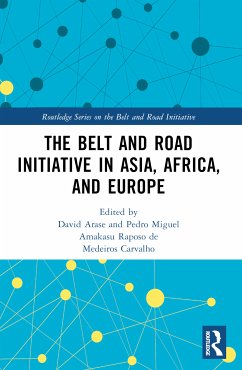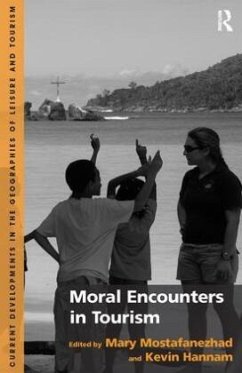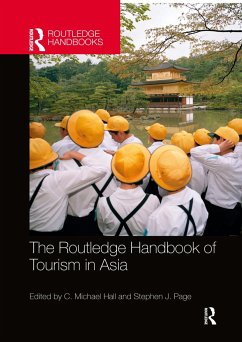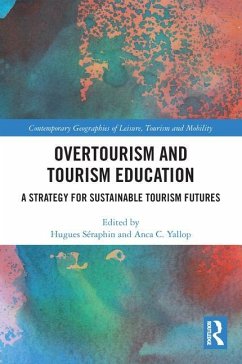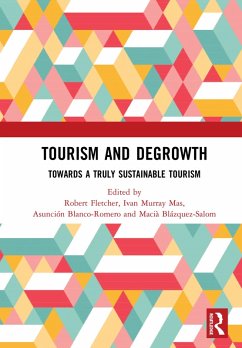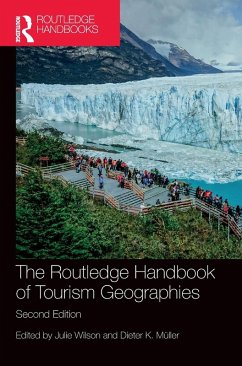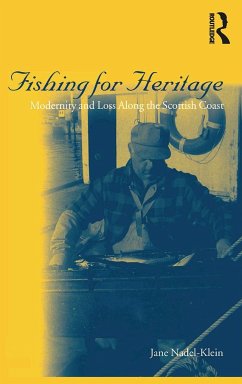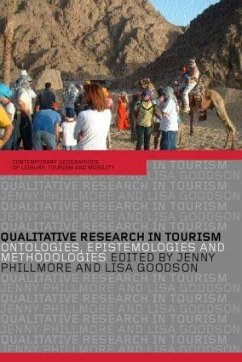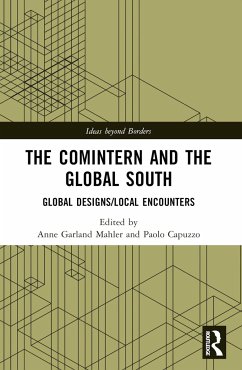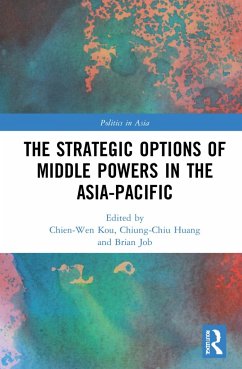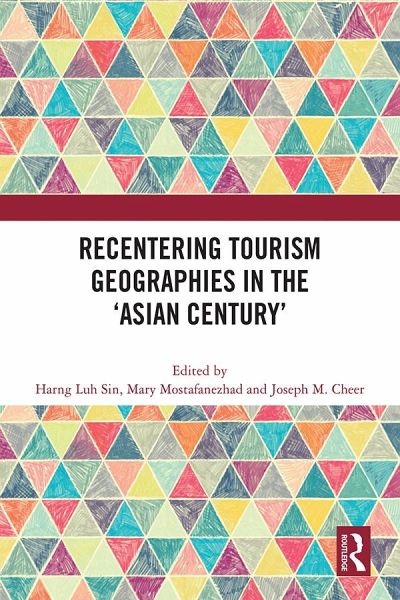
Recentering Tourism Geographies in the 'Asian Century'
Versandkostenfrei!
Versandfertig in 6-10 Tagen
154,99 €
inkl. MwSt.
Weitere Ausgaben:

PAYBACK Punkte
77 °P sammeln!
This book considers what the transition into the Asian Century means for some of the most urgent issues in the world today, such as sustainable development, human rights, gender equality, and environmental change. The book critiques Anglo-Western centrism in tourism theory and calls on tourism scholars to make radical shifts toward more inclusive epistemology and praxis.From the British Century of the 1800s to the American Century of the 1900s to the contemporary Asian Century, tourism geographies are deeply entangled in broader shifts in geopolitical power. In the shadow of the COVID-19 pande...
This book considers what the transition into the Asian Century means for some of the most urgent issues in the world today, such as sustainable development, human rights, gender equality, and environmental change. The book critiques Anglo-Western centrism in tourism theory and calls on tourism scholars to make radical shifts toward more inclusive epistemology and praxis.
From the British Century of the 1800s to the American Century of the 1900s to the contemporary Asian Century, tourism geographies are deeply entangled in broader shifts in geopolitical power. In the shadow of the COVID-19 pandemic, the significance of shifts in tourism geographies and the themes addressed in this volume are more urgent than ever. That the world faces increasing turmoil is abundantly clear. Yet, amidst the disruption to the everyday, it is hope and compassion, but also political-economic restructuring that is needed to reset the tourism industry in more sustainable, equitable, and ethical directions. In no uncertain terms, the pandemic has forever changed the tourism industry as the world once knew it. This book, therefore, sets out to collectively build on the momentum of the inclusive scholarship that Critical Tourism Studies-Asia Pacific is renowned for, while also asking readers to pause and reflect on the possibilities and challenges of tourism in a post-pandemic Asian Century.
The chapters in this book were originally published as a special issue of the journal, Tourism Geographies.
From the British Century of the 1800s to the American Century of the 1900s to the contemporary Asian Century, tourism geographies are deeply entangled in broader shifts in geopolitical power. In the shadow of the COVID-19 pandemic, the significance of shifts in tourism geographies and the themes addressed in this volume are more urgent than ever. That the world faces increasing turmoil is abundantly clear. Yet, amidst the disruption to the everyday, it is hope and compassion, but also political-economic restructuring that is needed to reset the tourism industry in more sustainable, equitable, and ethical directions. In no uncertain terms, the pandemic has forever changed the tourism industry as the world once knew it. This book, therefore, sets out to collectively build on the momentum of the inclusive scholarship that Critical Tourism Studies-Asia Pacific is renowned for, while also asking readers to pause and reflect on the possibilities and challenges of tourism in a post-pandemic Asian Century.
The chapters in this book were originally published as a special issue of the journal, Tourism Geographies.





